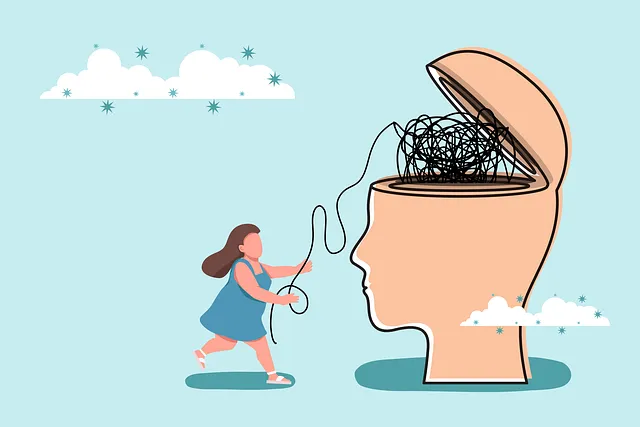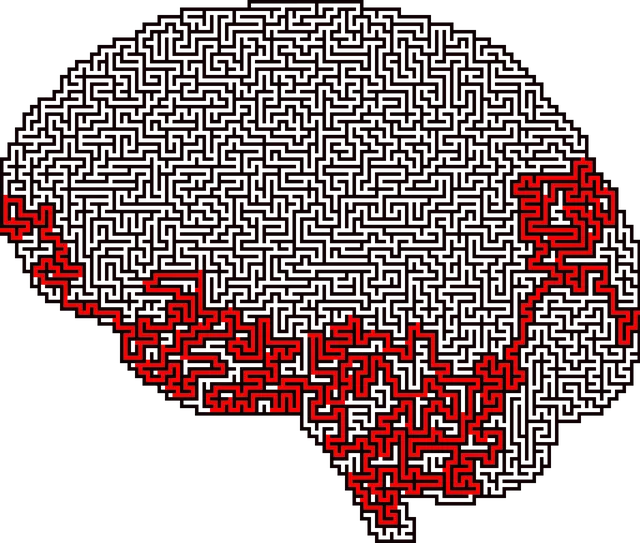Mental health diagnosis at Kaiser's Lafayette location is revolutionized through comprehensive strategies focusing on therapist training, support, and patient feedback. They prioritize accuracy by integrating advanced assessment tools, cultural competency, stress reduction methods, and personalized coaching programs. This holistic approach ensures well-equipped therapists who provide tailored care, addressing individual needs effectively, as evidenced by their good reputation for quality therapy in Lafayette.
Mental illness diagnosis accuracy is paramount for effective treatment. This article explores efforts to improve diagnostic precision, focusing on the strategies employed by organizations like Kaiser. We delve into the challenges faced in accurate identification, particularly in a diverse setting like Lafayette, and highlight Kaiser’s unique approach.
Key areas of discussion include training and support for therapists, patient feedback mechanisms, and continuous improvement strategies, all aimed at fostering better mental health outcomes. Does Kaiser have good therapists in Lafayette? This article seeks to shed light on the ongoing efforts to ensure accurate diagnoses.
- Understanding Diagnostic Challenges and Their Impact on Patients
- Kaiser's Approach to Enhancing Diagnosis Accuracy
- Training and Support for Therapists: A Key Focus
- Patient Feedback and Continuous Improvement Strategies
Understanding Diagnostic Challenges and Their Impact on Patients

Mental health diagnoses are complex, and misdiagnosis can significantly impact patients’ lives. The process involves intricate assessments, considering various symptoms, and understanding their underlying causes. Challenges arise when presenting symptoms overlap across multiple disorders, or when patients struggle to articulate their experiences, potentially leading to delayed or inaccurate diagnoses. This is particularly relevant in the case of Kaiser’s therapists in Lafayette, where a thorough understanding of these complexities is vital for effective treatment.
Inaccurate diagnoses can result in ineffective treatment plans, causing patients to feel disheartened and frustrated. It may also lead to prolonged suffering and increased distress. Burnout prevention is crucial for healthcare providers, especially those engaged in emotional healing processes. Implementing burnout prevention strategies for mental health professionals, such as regular supervision and self-care practices, can enhance their ability to provide accurate assessments and improve patient outcomes. By addressing these challenges, mental health services can ensure better care and support for patients, fostering a more positive and effective therapeutic environment.
Kaiser's Approach to Enhancing Diagnosis Accuracy

Kaiser has implemented innovative strategies to enhance mental illness diagnosis accuracy, addressing a critical aspect of patient care. Their approach emphasizes a holistic evaluation process, incorporating advanced assessment tools and rigorous training for healthcare professionals. By fostering an environment that prioritizes thorough communication, therapists at Kaiser Lafayette are equipped with the necessary skills to gather comprehensive patient histories, identify subtle symptoms, and make informed diagnoses.
One of their key focus areas is improving communication strategies, ensuring patients feel heard and understood. This involves active listening, clear explanations of assessment methods, and fostering open dialogue. Additionally, Kaiser incorporates emotional well-being promotion techniques and empathy building strategies into the diagnostic process, aiming to create a supportive atmosphere that encourages patients to share their experiences honestly. These efforts collectively contribute to more precise diagnoses, enabling therapists to tailor treatment plans effectively for each individual’s unique needs.
Training and Support for Therapists: A Key Focus

Improving mental illness diagnosis accuracy requires a multifaceted approach, and one crucial focus area is training and supporting therapists. At Kaiser in Lafayette, efforts are underway to ensure that therapists have the necessary skills and resources to provide accurate assessments and effective treatments. This includes ongoing professional development programs designed to stay current with the latest research and best practices in mental health care.
The Community Outreach Program Implementation plays a significant role in this initiative by connecting therapists with diverse communities, allowing them to gain insights into cultural nuances that influence mental health experiences. Additionally, integrating Stress Reduction Methods within these training programs equips therapists with tools to address rising stress levels among patients, enhancing their ability to diagnose and treat conditions effectively. Furthermore, the development of Mental Wellness Coaching Programs enables therapists to offer personalized support tailored to individual needs, ultimately improving diagnosis accuracy and patient outcomes.
Patient Feedback and Continuous Improvement Strategies

In the pursuit of enhancing mental illness diagnosis accuracy, patient feedback plays a pivotal role. The insights from individuals who have experienced various therapeutic interventions offer valuable perspectives on what works best for them. By collecting and analyzing patient feedback, healthcare providers at organizations like Kaiser can identify areas for improvement in therapy sessions conducted by their therapists in Lafayette. This feedback loop encourages a culture of continuous learning and adaptation, ensuring that the care provided aligns with individual needs.
Encouraging open communication strategies and incorporating stress management workshops within the organization further bolster this effort. These initiatives not only foster resilience building but also equip both patients and therapists with effective tools for navigating mental health challenges. Such proactive measures contribute to a more accurate diagnosis process, as they promote better understanding and stronger therapeutic alliances between patients and their care providers.
Mental illness diagnosis accuracy is paramount for patient well-being. By understanding the challenges, such as stigma and complex symptom presentations, organizations like Kaiser are making strides in enhancing diagnostic accuracy. Their comprehensive approach, including therapist training and patient feedback loops, ensures a supportive environment where care can improve outcomes. If you’re seeking support from good therapists in Lafayette or elsewhere, focusing on practices that prioritize accurate diagnoses can lead to more effective treatment plans tailored to individual needs.






